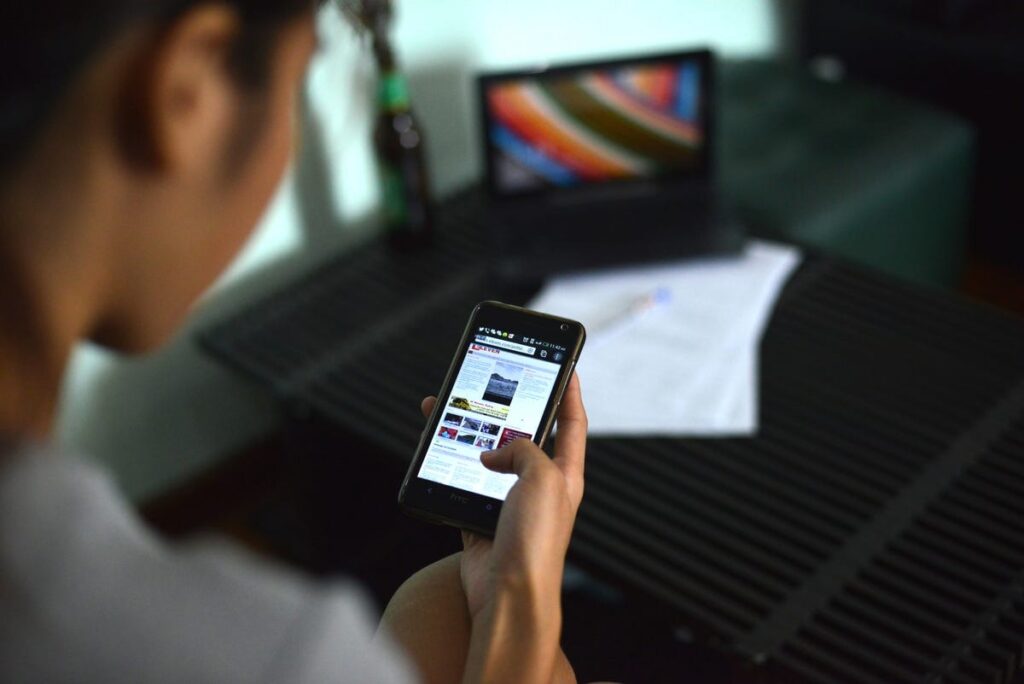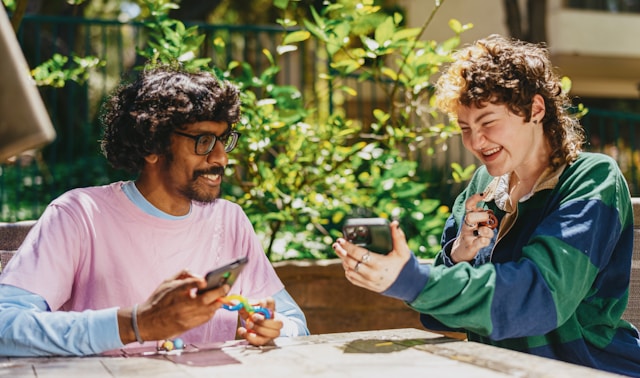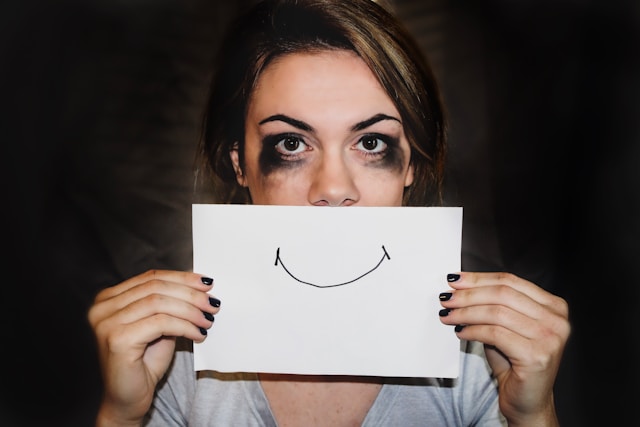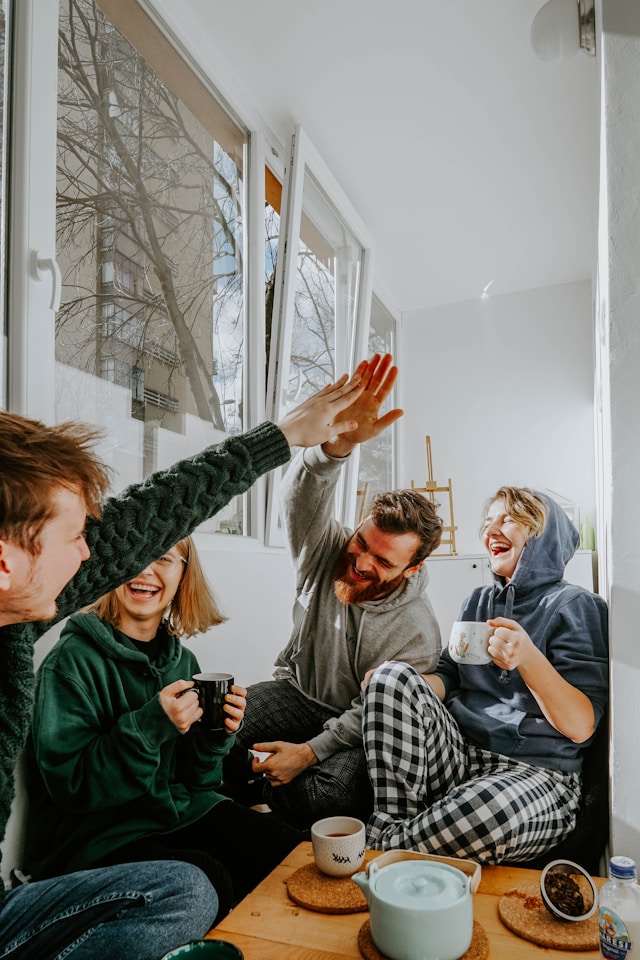Social media has ingrained itself as a daily routine for most individuals. People of all ages turn to platforms such as Facebook, Instagram, YouTube, and Twitter for communication and networking. In India, for instance, the average person spends about 2.4 hours per day solely on social media.

Humans are inherently social creatures, depending on companionship for mental well-being and happiness. Strong social connections can alleviate stress, anxiety, and depression while bolstering self-esteem and longevity. Conversely, a lack of meaningful connections poses significant risks to mental health.
Social media’s impact on mental health results from excess usage of popular social media platforms like Instagram and Twitter. However, they can’t fully replace face-to-face interaction, which triggers hormones that promote well-being. Paradoxically, excessive social media use can lead to feelings of loneliness and worsen mental health issues like anxiety and depression.
Suppose you spend excessive time on social media and experience negative emotions like sadness or loneliness. In that case, it’s crucial to reassess your online habits and strive for a healthy balance.
Positive Effects of Social Media on Mental Health

Social Support
Social media is a valuable tool for connecting with friends, family, and individuals across great distances. Particularly in the realm of mental health, those dealing with issues like anxiety and depression often find solace in connecting with professionals or others who share similar experiences online. Research indicates that maintaining virtual social connections can significantly benefit overall mental well-being.
Awareness and Education
Social media platforms are crucial in disseminating important information about mental health. They serve as platforms for raising awareness and combating the stigma associated with mental health conditions.
Expression and Creativity
Sharing personal stories, creative endeavours, and professional work on social media can empower and contribute to an individual’s self-esteem. This aspect of social media positively impacts mental well-being, as studies have shown that engaging in creative activities that include art therapy can reduce stress and enhance mood.
Negative Effects of Social Media on Mental Health

Addiction and Excessive Time Consumption
Social media platforms are designed to capture users’ attention, often leading to prolonged screen time. This excessive usage can disrupt sleep patterns, strain real-life relationships, contribute to physical health issues, and diminish self-esteem.
Comparison and Envy
Social media fosters a culture of social comparison, which can trigger feelings of inadequacy, leading to low self-esteem, anxiety, and depression. Research by Chou and Edge (2012) has shown that increased social comparison on platforms like Facebook correlates with decreased self-esteem.
Cyberbullying
Cyberbullying, occurring on digital platforms such as social media, can have severe repercussions, including stress, depression, anxiety, low self-esteem, isolation, and loneliness for victims.
Fear of Missing Out (FOMO)
FOMO drives individuals to compulsively check social media feeds due to anxiety about missing out on experiences. This behaviour can disrupt sleep patterns, decrease life satisfaction, worsen mood, and contribute to feelings of restlessness, impacting overall mental well-being.
Signs That Social Media is Impacting Your Mental Health

There’s no one-size-fits-all measure for determining whether your social media use is becoming unhealthy. Instead, it’s about recognizing the impact of time spent on social platforms on your mood, relationships, and daily life, as well as understanding your motivations for using them.
For instance, if your social media activity leads you to neglect face-to-face interactions, distracts you from responsibilities, or leaves you feeling envious, angry, or downcast, it may cause concern. Similarly, find yourself turning to social media out of boredom, loneliness, or a desire to provoke jealousy or upset in others.
It might be time to reassess your habits.
Here are some indicators that social media could be negatively affecting your mental well-being:
Prioritizing social media over real-life connections
If you’re spending more time engaging with social media than interacting with friends offline, or if you feel compelled to check your feeds constantly, even in social situations, it could signify a problem.
Unhealthy comparisons and negative self-perception
If you frequently compare yourself unfavourably to others on social media, leading to feelings of low self-esteem or body image issues, it’s worth addressing.
Experiencing cyberbullying or feeling powerless over online content
If you’re subjected to cyberbullying or feel unable to control what others post about you online, it can have adverse effects on mental health.
School or work distractions
Feeling pressured to maintain a social media presence, seeking validation through likes and comments, or responding immediately to friends’ posts can interfere with your ability to focus on school or work tasks.
Lack of self-reflection
If social media consumes all your free time, leaving no space for self-reflection and personal growth, it may hinder your mental well-being.
Engaging in risky behaviours for social media validation
Resorting to risky behaviours like posting embarrassing content, cyberbullying, or using social media in unsafe situations to garner attention can have serious consequences.
Sleep disturbances
Excessive social media use, especially before bed, can disrupt your sleep patterns and exacerbate mental health issues like anxiety and depression.
Worsening symptoms of anxiety or depression
Excessive use of social media use may leave you feeling more anxious, depressed, or isolated. Recognizing these signs as soon as possible can help you take steps to prioritize mental health and establish healthier boundaries with social media.
What are the Steps to Prioritize Your Mental Health
If you’re noticing any of these warning signs, reducing your social media usage may be beneficial. This could involve implementing screen time limits, setting restrictions on certain apps, or scheduling specific times for checking your accounts. Some individuals also find that taking periodic breaks or engaging in a social media “detox” can provide clarity and focus on their mental health and interpersonal relationships.
Here are some additional strategies to help minimize reliance on social media:
- Plan a small gathering with loved ones
Organize an intimate get-together with friends or family to enjoy face-to-face interactions and meaningful connections.

- Make time for exercise
Incorporating regular physical activity into your routine can improve physical health and enhance your mood and overall well-being.

- Volunteer
Find opportunities to give back to your community or support causes you care about. Volunteering can provide a sense of purpose and fulfilment outside of social media.

- Spend quality time with friends
Prioritize spending time with close friends in person, whether grabbing coffee, going for a hike, or simply enjoying each other’s company.

If you or someone you know struggles to break away from unhealthy social media habits, or if feelings of depression or anxiety persist for a long time, please consider seeking help from a healthcare provider or campus health centre professional. They can conduct screenings for depression and anxiety and recommend appropriate mental health therapy options tailored to your individual needs. Remember, prioritizing your mental health is very important, and resources are available to help you navigate challenges related to social media use.
FAQ’s
How to use social media safely?
To use social media safely, adjust privacy settings, be selective with friends, and avoid sharing sensitive information. Use strong, unique passwords and beware of scams or suspicious activity. Monitor your usage, report abuse, and stay informed about privacy and security measures.
Which is best and safe social media?
The best and safest social media platform depends on individual preferences, but generally, platforms like Facebook, Instagram, and Twitter offer robust privacy settings, security features, and tools to address issues like cyberbullying and misinformation, making them safer options for users.
Is social media harmful or beneficial?
The impact of social media can vary depending on individual usage and circumstances. While it can provide opportunities for connection, information sharing, and community building, excessive or irresponsible use may lead to negative effects such as addiction, cyberbullying, and mental health issues. Striking a balance and using social media mindfully can help maximize its benefits while minimizing potential harm.
